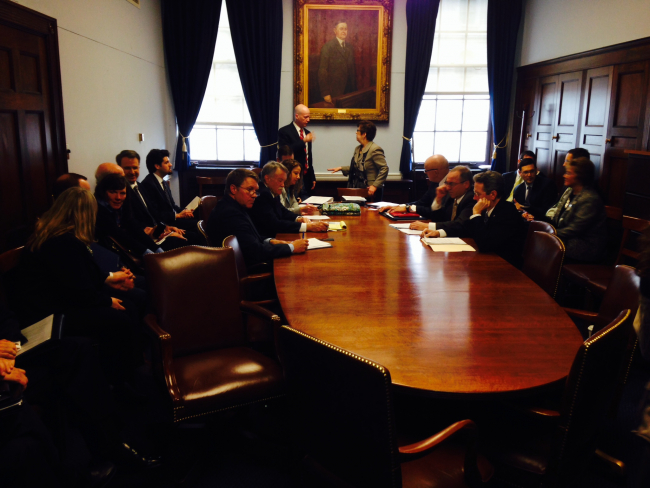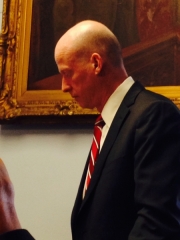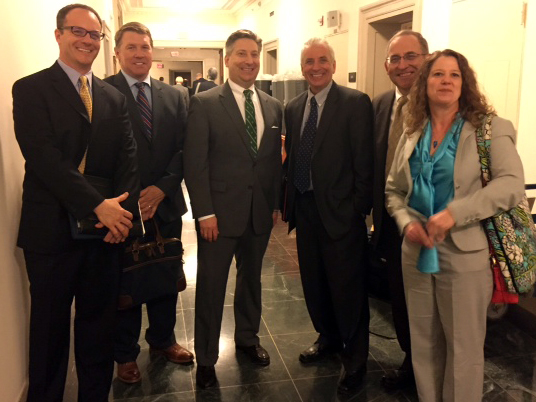BLOG
1031 Like-Kind Exchange Impact Study Results Released

On Tuesday, March 17, the Section 1031 Like-Kind Exchange Coalition released the results of a study that examines the impact of the repeal of 1031 like-kind exchanges (LKEs). The study, which was conducted by Ernst & Young, concluded that the impact of 1031 repeal would be a slowing of economic growth and a reduction in GDP.
In an event that took place at the House of Representatives' Longworth House Office Building, eight speakers from diverse industries spoke about their experiences with like-kind exchanges. Tracy Thompson, CFO of Yellowhouse Machinery Company discussed the economic benefits of like-kind exchanges and the detrimental impact their repeal would have on family-owned businesses. Jesco's Greg Blaszka similarly spoke about growth attributable to like-kind exchanges. Other speakers included Dan Wagner, Senior Vice President of Government Relations at the Inland Real Estate Group, and Carrie Roider, CEO of Erb Equipment Company.
 Robert Carroll, National Director of Ernst and Young's Quantitative Economics and Statistics (QUEST) practice and former Deputy Assistant Secretary of the Treasury for Tax Analysis, detailed the macroeconomic analysis the impacts a potential LKE repeal would have on GDP, including an increase to the cost of capital, labor productivity drop-off, and an increase in holding periods of business assets by roughly 40%.
Robert Carroll, National Director of Ernst and Young's Quantitative Economics and Statistics (QUEST) practice and former Deputy Assistant Secretary of the Treasury for Tax Analysis, detailed the macroeconomic analysis the impacts a potential LKE repeal would have on GDP, including an increase to the cost of capital, labor productivity drop-off, and an increase in holding periods of business assets by roughly 40%.
"The key source of these estimated impacts is the finding that the repeal of the like-kind exchange provisions, even when paired with a revenue neutral reduction in the corporate income tax rate, increases the cost of capital for business investment," the study states. "The higher cost of capital not only discourages investment, but also reduces the velocity of investment through longer holding periods, whereby business investment is locked into specific investment for a longer period of time, and greater reliance on debt financing."
Also in attendance were David Fowler, who Leads PwC’s LKE Practice, Accruit CEO, Brent Abrahm, and President of the Federation of Exchange Accommodators, Mary Cunningham, as well as Brian McGuire, President of the Associated Equipment Distributors (AED), Bob Henderson, the AED's EVP and COO, and Christian Klein, Vice President of Government Affairs of the AED.
"Like-kind exchanges allow domestic businesses to efficiently expand and prosper, timulating economic growth. Most importantly, it is used by a wide array of businesses including farmers, commercial real estate investors, construction companies, trucking and transporation companies as well as small family owned businesses that invest in real estate and vehicles," said Ms. Cunningham.
The findings of the Ernst & Young Section 1031 Economic Study and the press release are both available at 1031taxreform.com/1031economics/

From Left to Right: Brent Abrahm, Tracy Thompson, Christian Klein, David Fowler, Greg Blaszka, Carrie Roider

